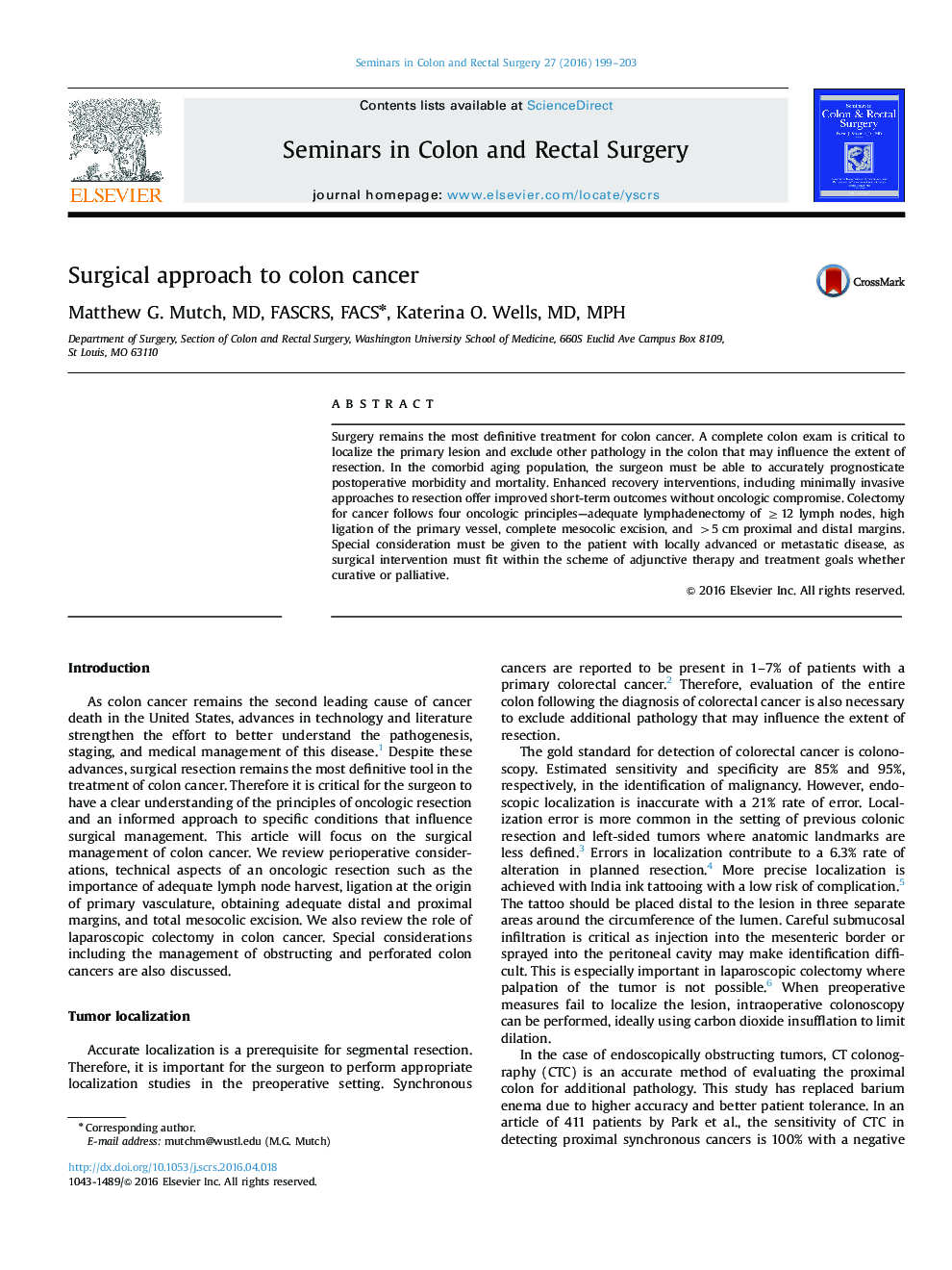| Article ID | Journal | Published Year | Pages | File Type |
|---|---|---|---|---|
| 5661586 | Seminars in Colon and Rectal Surgery | 2016 | 5 Pages |
Surgery remains the most definitive treatment for colon cancer. A complete colon exam is critical to localize the primary lesion and exclude other pathology in the colon that may influence the extent of resection. In the comorbid aging population, the surgeon must be able to accurately prognosticate postoperative morbidity and mortality. Enhanced recovery interventions, including minimally invasive approaches to resection offer improved short-term outcomes without oncologic compromise. Colectomy for cancer follows four oncologic principles-adequate lymphadenectomy of â¥12 lymph nodes, high ligation of the primary vessel, complete mesocolic excision, and >5 cm proximal and distal margins. Special consideration must be given to the patient with locally advanced or metastatic disease, as surgical intervention must fit within the scheme of adjunctive therapy and treatment goals whether curative or palliative.
